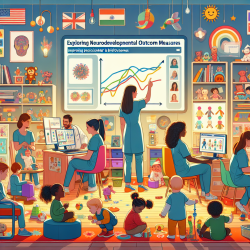Introduction
In the evolving landscape of medical education, understanding the motivations behind students' choices to engage in elective courses focusing on social inequalities and health disparities is crucial. The research article "Medical students’ motivations for participating in an elective focused on social inequalities and health disparities" provides valuable insights into these motivations. This blog aims to explore how practitioners can leverage these insights to enhance their skills and contribute to more effective educational outcomes.
Understanding Student Motivations
The study identified three primary themes that motivated medical students to participate in elective courses on social inequalities:
- Pre-existing Conditions: Students entered the elective with prior knowledge and experiences that shaped their understanding of social inequalities in medicine.
- Enacting Change: A strong desire to become effective physicians and improve the medical field motivated students to engage with these electives.
- Creating Community: Students valued a supportive learning environment where they could connect with peers and mentors who share similar interests and goals.
Implications for Practitioners
Practitioners can draw several lessons from these findings:
- Integrate Social Contexts: Incorporate discussions on social determinants of health and systemic inequities into regular curricula to address the knowledge gaps identified by students.
- Foster a Supportive Environment: Create safe spaces for dialogue and learning, encouraging students to share their experiences and perspectives without fear of judgment.
- Encourage Active Participation: Motivate students to take an active role in their learning by involving them in curriculum development and providing opportunities for them to engage in advocacy and community work.
Encouraging Further Research
While the study provides valuable insights, further research is necessary to explore the long-term impact of such electives on students' professional practices. Practitioners are encouraged to engage in collaborative research efforts to continue refining educational strategies that address health disparities and promote equity in healthcare.
Conclusion
Understanding the motivations of medical students to engage in electives focused on social inequalities can inform the development of more effective educational strategies. By integrating these insights into practice, educators can better prepare future physicians to address health disparities and contribute to a more equitable healthcare system.
To read the original research paper, please follow this link: Medical students’ motivations for participating in an elective focused on social inequalities and health disparities.










